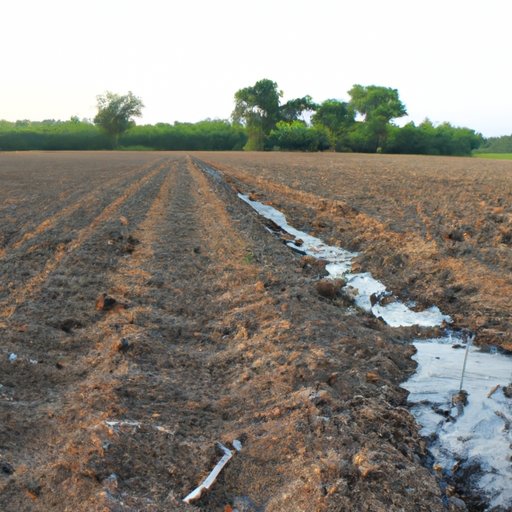Introduction
Agriculture has been an integral part of human existence since the dawn of civilization. Today, with more than 7 billion people on the planet, it is essential for us to understand how to produce enough food to sustain our growing population. But is agriculture a science? This article will explore the intersection between agriculture and science, and examine the role of scientific principles in modern farming.

The Role of Science in Modern Agriculture
Agricultural science is the application of scientific principles to the production of food and fiber. It involves the use of scientific knowledge to improve crop yields, increase efficiency in resource management, and enhance soil fertility. In addition, agricultural science is also concerned with food safety and quality, as well as animal health and welfare.
In order to achieve these goals, farmers have turned to technology to help them better understand and manage their land and resources. For example, precision agriculture uses sensors and GPS technology to monitor soil conditions and optimize irrigation and fertilization practices. Similarly, remote sensing technology can be used to identify weeds and pests, allowing farmers to apply targeted treatments rather than blanket spraying.

Examining the Scientific Principles Behind Farming
At its core, agriculture relies on the same scientific principles as any other field of science. These principles include chemistry, physics, biology, ecology, and genetics. For example, farmers use chemistry to understand the chemical composition of soils and how different nutrients interact with each other. They also use physics to understand the physical properties of soils and how they affect crop growth.
In addition, farmers rely on the principles of biology to understand the lifecycles of plants and animals, while ecology helps them understand the relationships between organisms and their environments. Finally, genetics plays an important role in selecting and breeding varieties of crops and animals that are better suited to particular climates and soil types.
Benefits of Applying Scientific Principles to Agriculture
The application of scientific principles to agriculture has proven to be invaluable in improving yields and increasing efficiency in crop production. By understanding the chemical and physical properties of soils and the lifecycles of plants and animals, farmers are able to optimize their farming practices for maximum output. This not only increases the amount of food produced, but also reduces wastage, making it more cost-effective and sustainable.
Furthermore, by better understanding the complexities of agricultural science, farmers are also able to enhance soil fertility through sustainable farming practices. This helps to ensure that soils are healthy and productive for future generations, while also reducing the need for artificial fertilizers and pesticides.
Finally, the application of scientific principles to agriculture has also improved food safety and quality. By understanding how food is produced, farmers are better equipped to identify potential hazards and take steps to minimize them. This helps to protect consumers from foodborne illnesses and ensures that the food they eat is of the highest quality.
Conclusion
In conclusion, it is clear that agriculture is a science. By applying scientific principles to farming, farmers are able to improve yields, increase efficiency, and enhance soil fertility. In addition, the application of science to agriculture has also improved food safety and quality, ensuring that consumers have access to safe and nutritious food. As the world’s population continues to grow, it is essential that we continue to utilize the power of science to ensure a secure and sustainable food supply.
(Note: Is this article not meeting your expectations? Do you have knowledge or insights to share? Unlock new opportunities and expand your reach by joining our authors team. Click Registration to join us and share your expertise with our readers.)
